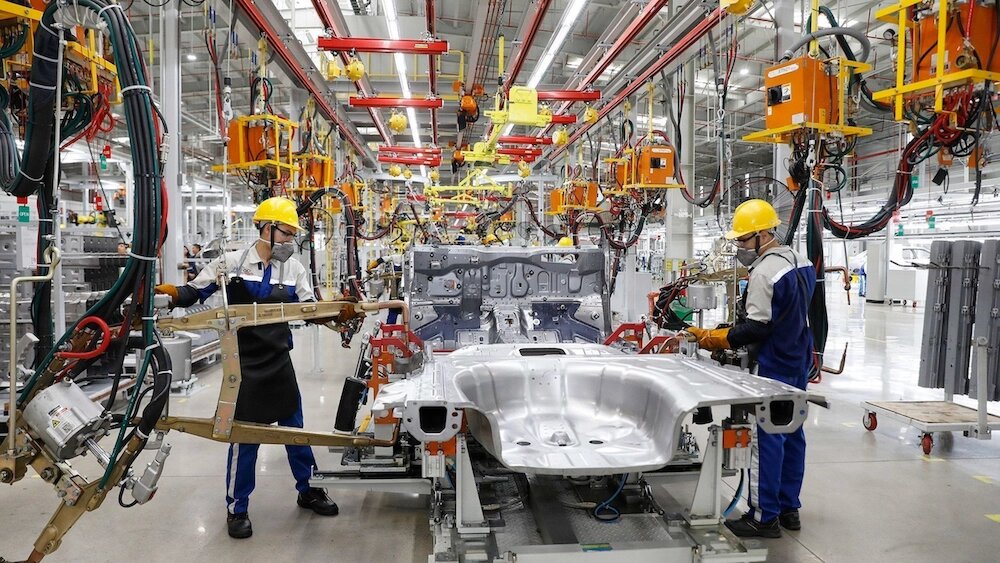In 1986 Vietnam was poorer than Haiti and the Congo are today. Its per capita GDP was barely $200 per year. Only a decade had passed since the Americans, more frustrated than exhausted, abandoned the war leaving behind a level of unprecedented level of devastation. And, to make matters even worse, after a short peace, the Vietnamese became involved in another war, with Cambodia and China.
But, in 1986, after only eight years as part of the Soviet Council for Mutual Economic Assistance (CAME), Vietnam's dictators realized that Communism served to keep the country under control, but not to feed it, so they decided to initiate a process of market-oriented reform (Doi Moi) that has been a resounding success in terms of economic growth.
Per capita GDP has increased over twenty-fold; agriculture, specializing in highly profitable products like coffee and pepper, is extremely profitable; total exports have tripled in the last decade alone; poverty has fallen from more than 60% to less than 5%; and it is an international leader in the production of Textiles and Electronics. All of this is financed by an astonishing amount of foreign capital: Samsung alone has invested in the country more than all the foreign investment in Cuba since 1959.
Despite being a dictatorship, Vietnam was able to transform its institutions to achieve, at breakneck speed, standards of living much higher than those allowed by Communism.
However, there are serious doubts about whether this model of economic liberalization, coupled with political repression, will allow the country to overcome the Middle Income Trap, which is when the level of growth becomes stagnant because production costs, mainly labor, rise and lose relative competitiveness, something that can only be overcome through the generation of technology and a continuous improvement of human capital.
In any case, could Castroism put Cuba on a similar path of growth?
Most likely not, as Vietnam's dictators did not earn a reputation, over the course of decades, for their financial delinquency, lack of reliability as a partner, disrespect for their own laws, and statist demagoguery. Now the regime is making obvious moves to, by exploiting MSMEs, transition towards a politically mediated form of crony-based capitalism, but its track record makes it very difficult for Castroism to attract the amounts of investment that Cuba would need to grow at the rate that Vietnam did for the last 30 years.
Although dominated by a Communist sect, Vietnam created a free market with transparent rules through sensible privatizations, and secured its reputation as a serious place to do business by signing numerous bilateral and multilateral international free trade agreements. In addition, it joined organizations with clear economic agendas, ones independent of the political affinities of the latest leaders in power, such as the Association of Southeast Asian Nations and the World Trade Organization.
Also very important is the fact that Vietnam abandoned Third World victimhood and actively sought to improve its relations with the United States, which went from placing an embargo similar to the one it has on Cuba to sending it huge amounts of development aid.
All this makes Vietnam a case study on the importance of building a country that is reliable and offers maximum economic freedom, but this is not enough, which rules it out as a model for Cuba, because human dignity does not don Prada, but rather freedom.
In addition, history has shown that institutions that restrict individual freedom and limit broad and spontaneous popular participation in political decisions end up strangling the economy, as elites become increasingly extractivist and fight with each other, which undermines productivity and, above all, hampers the generation of technologies that allow economic growth to rise to the standards that we consider First World today.
In short, Castroism has a lot of work to do to acquire the level of reliability and rigor of Vietnamese institutions, which prevents it from attracting the investments required to imitate the Asian country's growth. In addition, cultural differences between Cuban and Asian society mean that a certain degree of economic prosperity without individual freedoms make an oppressive political system in this part of the world less stable than in historically collectivist Asia, which is why Castroism has never wanted to imitate the Chinese or Vietnamese experiences, and is opting for the approach of its Russian comrades instead.
But, even if the economic success of that country could be replicated, that would only help to alleviate Cuba’s current penury (which would be, undoubtedly, valuable) but it would come at the cost of not favoring more inclusive, democratic institutions, which would lead to self-limiting growth due to the progressive increase in the cost of labor and lack of innovation capacity. This would be a misstep in a Cuba whose demographic alerts warn us that there is no time for more tests or experiments.
